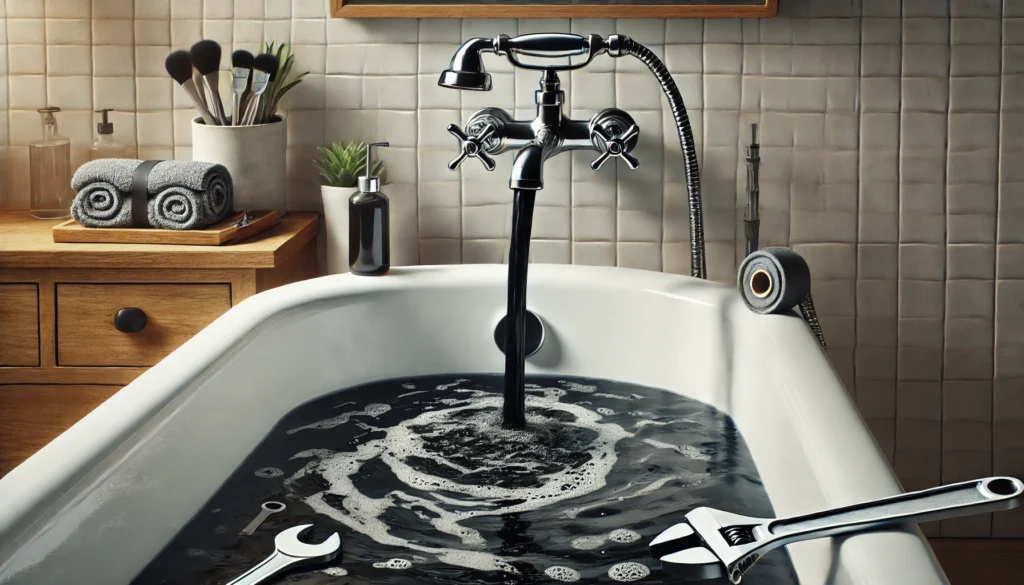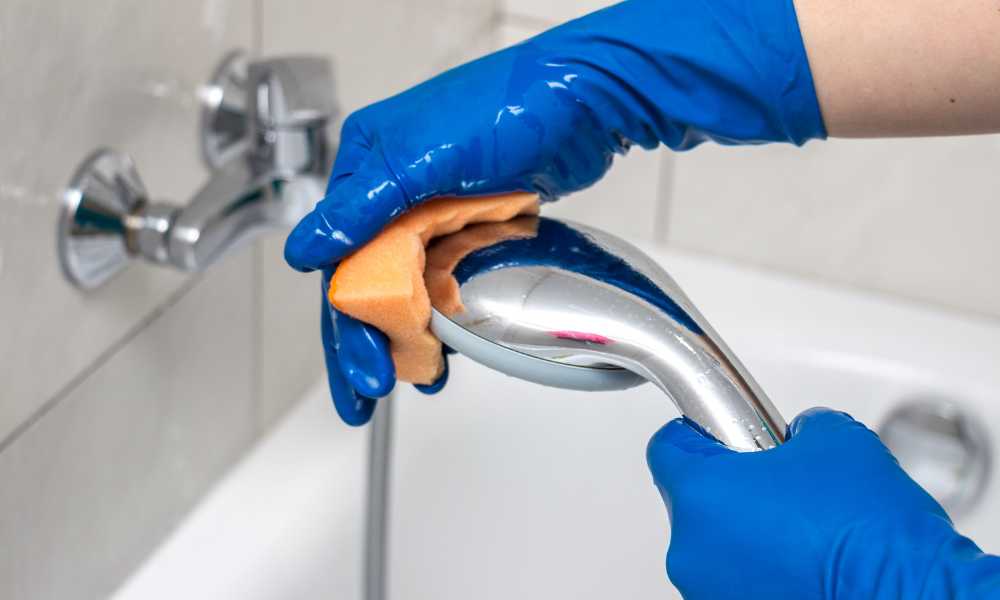The unsettling look of black water flowing from your tub faucet is sufficient to motivate immediate difficulty. This unwelcome surprise leaves owners perplexed, wondering about the protection and pleasantness in their water. While we often rely upon the readability of Aqua without a 2nd concept, locating it discolored seems like a breach of belief in without a doubt one of lifestyles’s simple requirements. Black liquid, more regularly than not, alerts underlying issues within your plumbing tool that should be addressed. The motives can range from pipe corrosion to sediment construct-up, all of which make contributions to this unpleasant hassle. Pinpointing the purpose is crucial, no longer handiest for restoring the water’s readability but additionally for preserving the general fitness of your plumbing device. Through this text, we’ll dive into why black liquid is probably flowing from your bathtub tap, look at the common reasons, and offer solutions to tackle this vexing problem.
Understanding The Problem: Why Is Aqua Coming Out The Tub Faucet
Black water flowing out of your bathtub tap is a clear indication that something has long gone awry inside your plumbing system. The most common culprits are corrosion and sediment construct-up inside your pipes or liquid heater. These particles dislodge and mix with the liquid, giving it that discolored look. It’s critical to recognize that black aqua also can signal a greater intense hassle, such as infection or pipe deterioration. Whether it’s sediment, corroded metal, or minerals inflicting discoloration, the important thing to fixing the hassle lies in figuring out its supply and taking speedy action.
Common Causes Of Black Aqua In Your Tub Faucet
Several potential factors could be behind the black aqua coming out of your faucet. These causes range from relatively harmless mineral deposits to more alarming signs of decaying pipes. Corroded metal pipes, sediment build-up, or issues with your liquid heater are the most frequent reasons for the black tint in your Aqua. Understanding the exact cause early on is essential in preventing further damage and preserving the integrity of your plumbing system. Each cause will require a specific solution to ensure the problem doesn’t persist or escalate.
Pipe Corrosion: A Major Culprit Behind Water
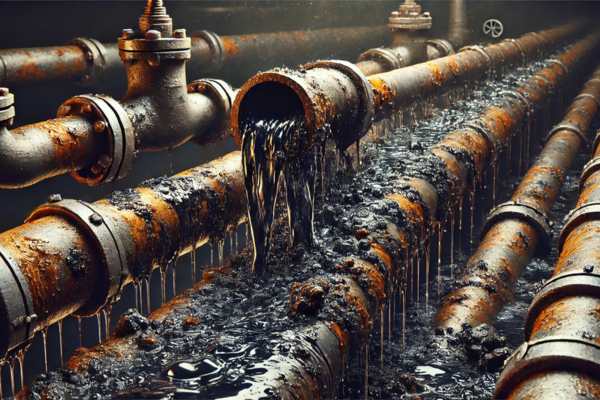
Over time, the pipes in your home may begin to corrode, especially those made from iron or steel. This corrosion is often the main reason behind black Aqua. As the metal deteriorates, particles break off and mix with the liquid, creating a dark, oily tint. If left unchecked, pipe corrosion not only affects the quality of your Aqua but can also lead to leaks, increased water damage, and costly repairs. Upgrading your old pipes with modern materials like copper or PEX is a surefire way to avoid these issues and improve your Aqua quality in the long run.
Sediment Build-Up: How It Contributes To Water
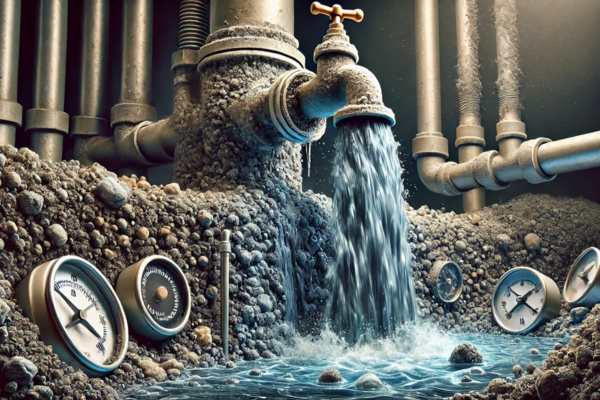
Sediment build-up is another common factor contributing to black aqua in your tub. Over time, minerals like magnesium and calcium naturally settle in the bottom of your pipes or water heater, especially in homes with hard Aqua. When liquid pressure increases or the plumbing system is disturbed, this sediment can loosen and flow out of your faucet, resulting in black or murky Aqua. The gritty texture of the liquid is often a giveaway of sediment presence. Regular flushing of your plumbing system can reduce sediment build-up and keep your liquid clear and clean,
What Does Water From The Faucet Indicate About Your Plumbing?
The sudden appearance of black aqua is a strong signal that something is amiss in your plumbing system. It could mean your pipes are nearing the end of their useful life, that significant sediment has accumulated, or that mineral deposits are clogging your system. These signs should not be ignored, as they often precede more serious damage. Monitoring the color and quality of your Aqua is a simple but effective way to assess the health of your plumbing system and prevent more severe issues down the line.
Distinguishing Water From Rusty Water
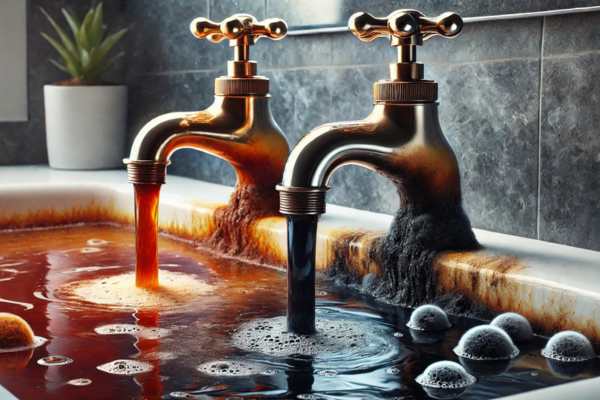
It’s important to differentiate between black Aqua and rusty liquid since each points to different plumbing problems. Rusty liquid typically has a reddish or brown tint and is caused by iron oxidation within the pipes. Black Aqua, on the other hand, is more likely the result of mold, manganese, or decomposing organic matter in your plumbing system. Rusty liquid may stain fixtures and clothes, while black aqua could contain harmful pathogens, making it a more urgent concern.
Is Black Water A Health Hazard? What You Need To Know
While black Aqua isn’t always dangerous, it should still be treated with caution. In some cases, it can carry harmful bacteria, mold, or other contaminants, particularly if it originates from decomposing organic material within the pipes. If you notice black aqua, avoid using it for bathing, drinking, or cooking until you have identified and addressed the cause. Testing the water and consulting with a professional will ensure your household remains safe.
How To Test The Quality Of Water From Your Tub
When faced with black liquid from your faucet, the first step is to conduct a water quality test. You can use a home testing kit or hire a professional to take samples for more in-depth analysis. The results will help identify the levels of minerals, bacteria, or other contaminants present in the water. Armed with this information, you can take the appropriate steps to fix the problem and restore your liquid quality.
Effects Of Old Or Damaged Pipes On Water Quality
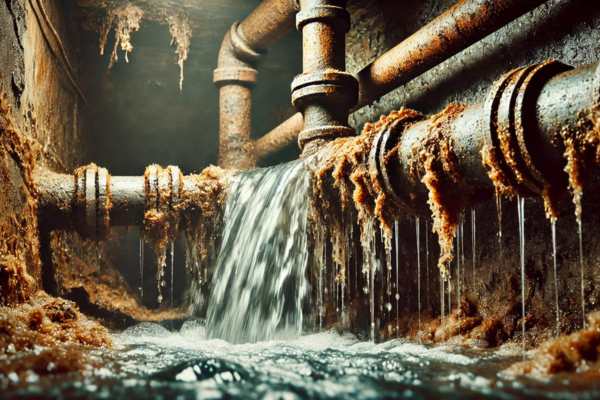
As your home’s pipes age, they gradually weaken, leading to the release of sediment, rust, or minerals into the liquid. Damaged or corroded pipes can introduce these particles into the water, causing discoloration and sometimes even a foul odor. Maintaining your pipes and replacing them when necessary is essential for preserving liquid quality and preventing further issues like leaks or Aqua damage.
Could Your Water Heater Be Causing Black Water?
Water heaters, especially those in homes with hard liquid, can accumulate sediment over time. This sediment can then break free and mix with the liquid, resulting in black or dark-colored liquid coming from your faucets. Regular flushing of your Liquid heater, along with proper maintenance, can help prevent sediment build-up and keep your Aqua heater in optimal working condition.
Mineral Deposits: A Hidden Source Of Water
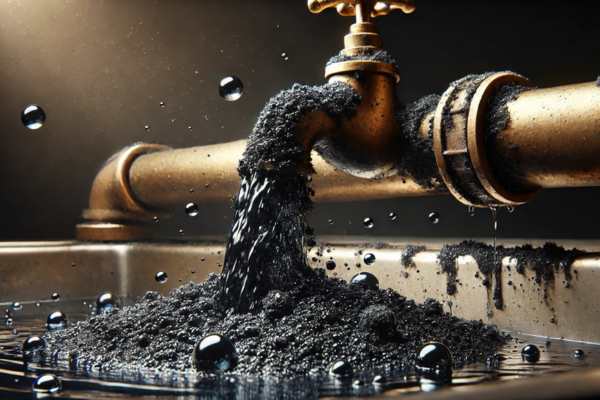
Manganese and iron deposits are naturally present in many water supplies. When these minerals accumulate in the plumbing system, they can cause Liquid discoloration, giving it a black or dark appearance. Although these minerals aren’t harmful in small quantities, their concentration can significantly affect water quality. Addressing these mineral deposits may require regular system cleaning or installing liquid softeners or filtration systems.
The Role Of Water Pressure In Dislodging Sediment And Causing Water
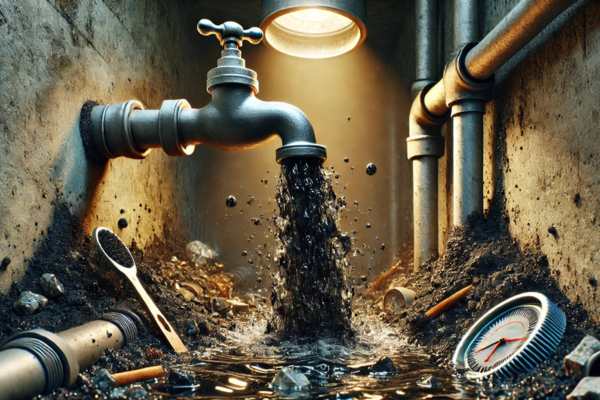
Sudden increases in water pressure can dislodge sediment and corrosion particles from your pipes, sending them into your Liquid supply. This is one reason why black Liquid might appear after a period of low liquid usage or following construction work that disturbs the municipal liquid supply. To prevent such occurrences, consider installing pressure regulators to stabilize Aqua flow and reduce the risk of sediment dislodgement.
When Is It Time To Call A Plumber For Water Issues?
If black water continues to flow from your faucet despite your troubleshooting efforts, it’s time to call a professional plumber. Persistent black aqua can signal deeper issues, such as severe pipe corrosion, contamination, or significant sediment build-up that requires more advanced tools and techniques to address. A plumber will thoroughly assess your plumbing system and provide the appropriate solution.
Diy Steps To Diagnose The Cause Of Water
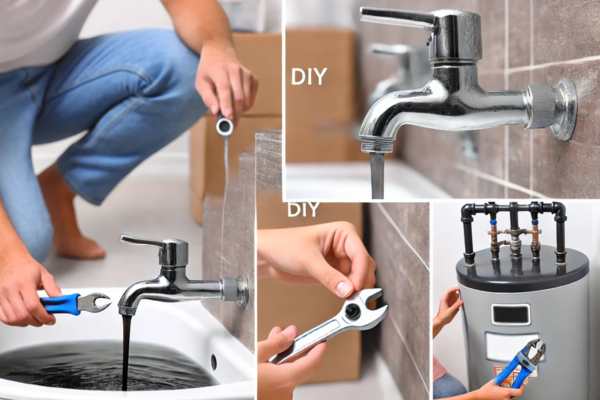
Before you contact a plumber, there are a few DIY steps you can take to try to identify the cause of black aqua. First, run the Liquid for several minutes to see if the discoloration clears up. If the problem persists, determine whether it’s isolated to one faucet or affects the entire house. Additionally, try flushing your water heater to remove sediment. These initial steps can help you determine whether the problem is localized or more widespread.
How To Flush Your Plumbing System To Eliminate Water
Flushing your plumbing system is an effective way to remove sediment or mineral build-up that may be causing black aqua. To do this, shut off the Aqua supply and open all the faucets to drain the system. Once drained, turn the Liquid back on at full pressure to flush out any remaining particles. This simple but powerful process can greatly improve the clarity and quality of your liquid.
Replacing Old Pipes: A Solution To Persistent Water

If black water remains a problem despite regular maintenance, it may be time to consider replacing your old pipes. Corroded pipes compromise Aqua quality and weaken your plumbing system, leading to costly damage. Upgrading to modern materials like copper or PEX not only improves liquid quality but also ensures your system’s longevity and resilience.
Should You Be Concerned About Water From A Well?
If your home relies on well liquid, black aqua issues can be particularly concerning. Wells are more prone to sediment and mineral contamination, which can cause Liquid discoloration. If black Liquid is affecting your well system, it may indicate problems with the Aqua source or well components. Installing a Aqua filtration system and performing regular well maintenance are key to mitigating this issue.
Preventing Black Water: Regular Maintenance Tips For Your Plumbing
Preventing black water begins with regular plumbing maintenance. Flushing your liquid heater, inspecting your pipes for corrosion, and cleaning aerators are simple yet effective steps you can take to maintain clear liquid. Installing Aqua softeners or filters can further reduce the risk of mineral build-up and discoloration. Proactive maintenance is key to avoiding black aqua altogether.
The Importance Of Aqua Filtration Systems In Reducing Black Water
Installing an Aqua filtration system is an excellent way to combat black liquid. These systems filter out sediments, minerals, and bacteria, ensuring your Aqua is safe and Clean Matte Black Faucet. Options like whole-house filters, reverse osmosis systems, and sediment filters address the root causes of liquid discoloration, providing long-term peace of mind.
What To Do If Your Tub Continues To Produce Aqua
If your tub continues to produce black aqua despite taking preventive measures, further action is required. At this point, it’s best to consult with a professional plumber or Aqua quality specialist. They will perform a thorough inspection and suggest targeted solutions, such as replacing corroded pipes, installing a filtration system, or repairing the liquid heater.
When To Seek Professional Help For Persistent Aqua Issues
Knowing when to call for professional help is crucial. If DIY solutions fail to resolve the issue or if the black aqua returns after a short period, a more serious underlying problem may be present. Professional plumbers possess the necessary expertise and tools to diagnose and fix the issue, ensuring your liquid remains clean and safe for everyday use.
Conclusion
Black water emerging from your tub faucet is alarming, but understanding its cause is the first step toward resolution. Whether it’s corroded pipes, sediment build-up, or mineral deposits, addressing the issue promptly will help prevent further damage and restore your water’s clarity. Regular maintenance, combined with professional assistance when necessary, will ensure your plumbing system remains in good health, providing safe and clear liquid for all your household needs.
